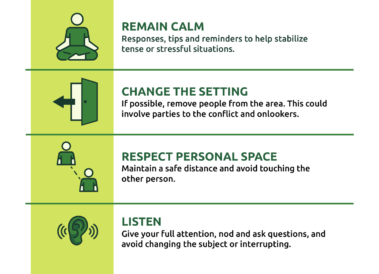The Elections Group is providing tailored communications assistance to election officials free of charge – or at low cost – through our Communications Resource Desk. Available support includes guidance on writing effective press releases, working with the media, writing guest columns and developing a crisis communications plan. Templates for posters, handouts and social media graphics explaining the elections process are also available to download or request for customization.
October 7, 2022
11 Media Relations Tips for Election Officials
More people than ever – including members of the media – are paying close attention to election processes throughout the United States.
Given this reality, election officials should be ready for increases in the number of media requests they receive ahead of each election. Election officials should use this to their advantage to share accurate election information with their voters.
We’ve developed 11 tips that election officials can use when interacting with reporters.
1. Develop a media policy
If you’re in a jurisdiction with a public information officer or communications director, that person should be your main contact for handling media requests. If you do not have a person with specific job duties related to communicating with the public and media, determine who in your office is best suited to handle these requests. Develop a policy for how to manage these requests. In the policy, include who is responsible for drafting and approving responses to media questions as well as how to manage phone or television interviews.
2. Develop relationships with media
Proactively reach out to reporters to develop relationships. In the event of an election-related emergency, you’ll be grateful for the relationships you fostered. Providing easy access to contact information and other information is one way to begin to ingratiate your office with members of the media.
3. Be mindful and respectful of deadlines
Print and TV journalists usually work on strict deadlines. Responding quickly and being mindful of these deadlines will curry favor for you and your office.
4. It is OK not to accept every media request
For instances when you cannot accept a media request, be sure to respond to let them know that you are unable to comment at this time. If possible, provide an honest reason, (e.g. “This office does not comment on pending litigation.”)
5. Remember, you are the trusted source of elections information
Be confident when presenting information directly related to the work of your office. If an interviewer begins to ask about items that are outside of the responsibilities of your position or office, do not hesitate to respectfully decline talking about the subject. Direct the reporter to sources that can be more helpful to them. You are driving the interview as the subject matter expert.
6. Consider the best way to respond to media inquiries.
Not every request requires that you talk on camera or over the phone. You may consider, in certain instances, drafting a statement that can be shared more widely or hosting a press conference – rather than having to respond individually to several publications.
7. Track media inquiries and requests
A simple Excel spreadsheet can help you keep track of how many and what type of requests you’re receiving. Archive articles once they are published. Refer to trends from past election cycles to inform your proactive communications efforts in future election cycles.
8. Speak in clear and concise soundbites
Remember that not everyone understands the intricacies and complexities of election processes. Speak in soundbites, avoid filler words (“like,” “um,” etc.) and do not use acronyms.
9. It’s OK not to know something
Stick to topics within your scope of expertise or responsibility. Collaborate cross-departmentally as needed, consulting with other subject matter experts. However, avoid directly saying “I don’t know.” Instead, say “I will have to get back to you on that matter …” or refer them to someone who may be able to answer their question in accordance with your office’s policy.
10. Practice with a coach
Election officials are in the news more than ever these days. Providing effective interviews is a skill that can – and should – be practiced. Consider practicing with a coach – or reach out to The Elections Group for virtual assistance.
11. “On background” and “off the record” – know the difference
“On background” means a reporter can use the information and attribute it to an unnamed source such as “a local election official” or “someone familiar” with the topic. “Off the record” means the information cannot be used in a story, but is provided to help the reporter put what they’re reporting about in context or give them guidance on where to do additional reporting. Clarify, in advance, if you’re saying something on background or off the record. Otherwise, journalists will assume anything you say is on the record.
Get Help from The Elections Group



